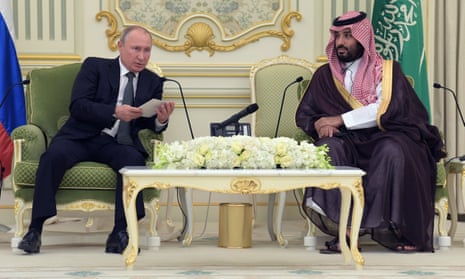When the West Texas Intermediate (WTI) oil price for May futures contracts – an agreement to buy or sell the commodity at a predetermined price at a specified future date – tumbled to -$38 a barrel, the Covid-19 economic crisis appeared to have taken a turn to the surreal. Traders, some of whom buy oil not to use but as a financial asset, were paying people to take oil from them because only a few had the capacity to take delivery in Cushing, Oklahoma, where storage space is virtually full.
What happened in oil trading on Monday 20 April was an epiphenomenon conjured by oil as a financial commodity. Nobody thought that oil demand had permanently cratered, and indeed the WTI price for June delivery stayed just above $20 a barrel, as did the price of Brent crude, the benchmark for European, Middle Eastern and African oil.
However, this does not mean there isn’t trouble brewing in the oil markets, and as a result, for the rest of us. Even at the June price, the going rate is dangerously low. For the past few years, a worldwide oversupply means oil has been sold too cheaply for producers to extract oil profitably or finance petrostates, such as Saudi Arabia. This was the outcome of an overshoot in the industry as US producers sought to frack shale oil. This made up for a previous undersupply in global markets, but ensured that by 2014, the addition of shale to the conventional oil supplied by the Organization of the Petroleum Exporting Countries (Opec) and Russia had produced a glut.
When too many producers wish to sell too much oil, they engage in a destructive race to the bottom. When that price reaches a crisis point, it is in the producer states’ interests to cooperate to constrain supply to force prices back up. This dynamic is what pushed Saudi Arabia and Russia to form a reluctant alliance in November 2016 in what became known as Opec+. But Saudi-Russian cooperation also allowed American shale companies to freeride on higher prices.
After the US slapped sanctions on Moscow over the Nord Stream 2 gas pipeline – a project that would allow Russia to export more gas to Germany – at the end of last year, Vladimir Putin became increasingly reluctant to facilitate US freeriding by cutting Russian output.
As Covid-19 hit and the global economy started to grind to a halt, Opec+ came apart. It seems that when Putin refused to cut production to stabilise prices, Mohammed bin Salman decided to flood the market instead to procure a bigger market share. Given that demand was evaporating, this was a spectacular misjudgment by the Saudi crown prince, and it caused share and bond markets to crash during the week beginning 9 March.
If the collapse in the May contract on 20 April was a transitory illustration of the problems in oil markets, the fact that 2022 futures prices for that day were not much above $30 emphatically does not bode well. Oil needs to be expensive enough to cover the costs of production, and in the case of American shale oil to service the debt sustaining the sector. Without higher prices there will be insufficient supply to restore growth, and oil will cause cascading defaults across credit markets that will risk another banking crisis. The Mexican state oil company, Pemex, is already reeling under a debt crisis, and the credit rating agency Moody’s has this week downgraded Mexico’s sovereign debt because of Pemex’s woes.
The bad news for those who think the collapse in oil prices is good for the climate is that our financial markets, economies and politics are inescapably intertwined with oil, and the oil industry is in trouble. There can be no rapid transition to a green economy because there are not yet sufficient alternative energy sources to replace the volume of economic and daily activity that oil powers. It is quite possible that oil demand will not hit 100m barrels per day again for a long time, if ever. But there will be no beginning to an economic recovery from the global shutdown that does not involve consumers buying more expensive oil and oil-dependent goods.
